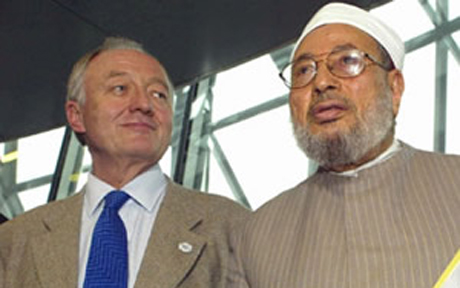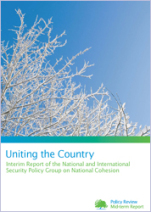 Jerome Taylor takes up Yusuf al-Qaradawi’s call for the release of two Austrians, Wolfgang Ebner and Andrea Kloiber, kidnapped in Tunisia by al-Qaeda. He writes:
Jerome Taylor takes up Yusuf al-Qaradawi’s call for the release of two Austrians, Wolfgang Ebner and Andrea Kloiber, kidnapped in Tunisia by al-Qaeda. He writes:
“Qaradawi may support what he calls the resistance in Palestine and Iraq but compared to the violent extremist groups gaining in popularity throughout the Muslim world he’s a desperately needed voice of relative reason. And more importantly when he and others like him speak the wider Muslim world listens.
“The next time a Britain gets kidnapped I just hope we haven’t burned too many bridges with people like Qaradawi who may be able to help secure their release and are far better placed than our discredited governments to counter the kind of violent extremism in the Islamic world which leads to hostage taking in the first place.”
A good point, unfortunately undermined by the preceding comment: “Why would we want to let someone into the country who has said gay men and women living in countries that use Shari’a should be punished with death or that human bombs targeting civilians in Israel are acceptable?”
Of course, Qaradawi supports neither of these views.

 DOHA – Supporters of Qatar-based Muslim scholar Sheikh Yusuf al-Qaradawi staged a sit-in outside the British embassy in Doha on Wednesday to protest at London’s denial of a visa to the controversial cleric.
DOHA – Supporters of Qatar-based Muslim scholar Sheikh Yusuf al-Qaradawi staged a sit-in outside the British embassy in Doha on Wednesday to protest at London’s denial of a visa to the controversial cleric. “Last week, as the archbishop’s sharia storm raged, Gordon Brown banned the leading Islamic cleric Sheikh Yusuf al-Qaradawi from the country. The pretext given was his support for Palestinian suicide attacks during the intifada. But the 81-year-old scholar has been to Britain several times since then – in fact he was encouraged to come by the government after the Iraq invasion because of his opposition to al-Qaida.
“Last week, as the archbishop’s sharia storm raged, Gordon Brown banned the leading Islamic cleric Sheikh Yusuf al-Qaradawi from the country. The pretext given was his support for Palestinian suicide attacks during the intifada. But the 81-year-old scholar has been to Britain several times since then – in fact he was encouraged to come by the government after the Iraq invasion because of his opposition to al-Qaida. David Cameron was under fire yesterday after it emerged that the radical Muslim scholar Yusuf al-Qaradawi had been admitted into the UK when the Tory leader was working in the Home Office.
David Cameron was under fire yesterday after it emerged that the radical Muslim scholar Yusuf al-Qaradawi had been admitted into the UK when the Tory leader was working in the Home Office.